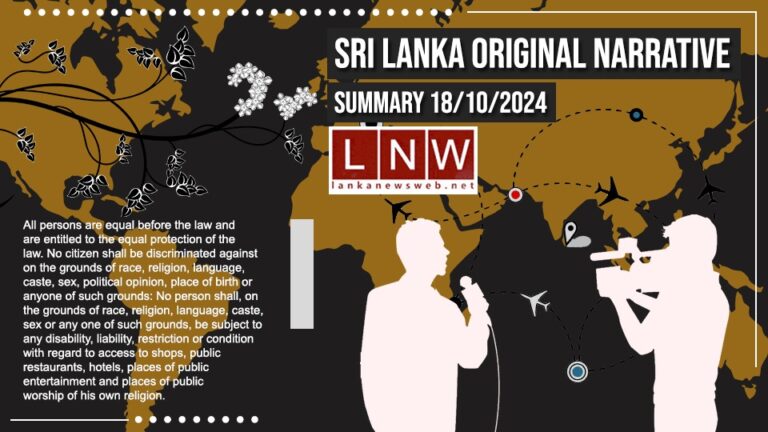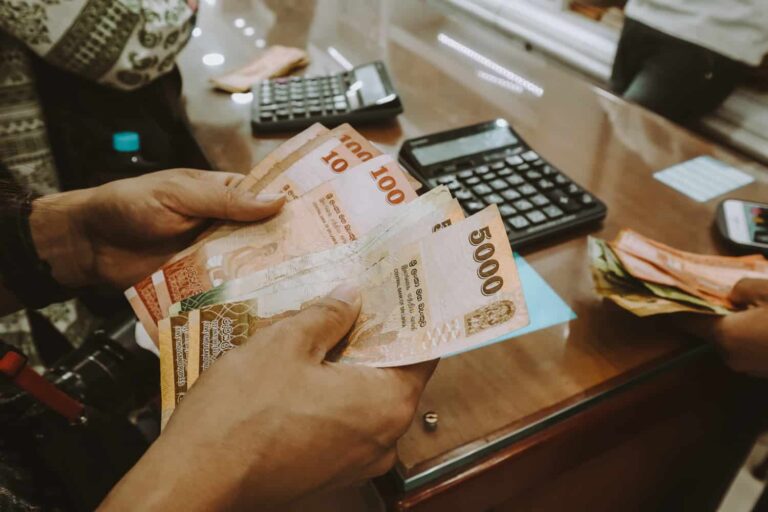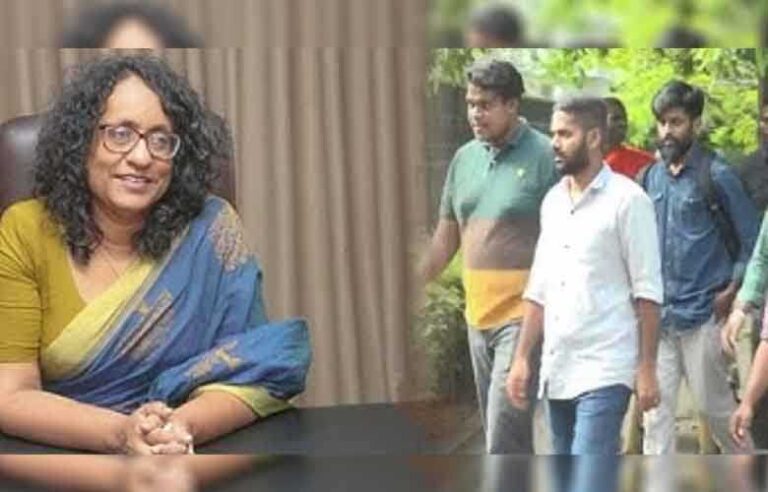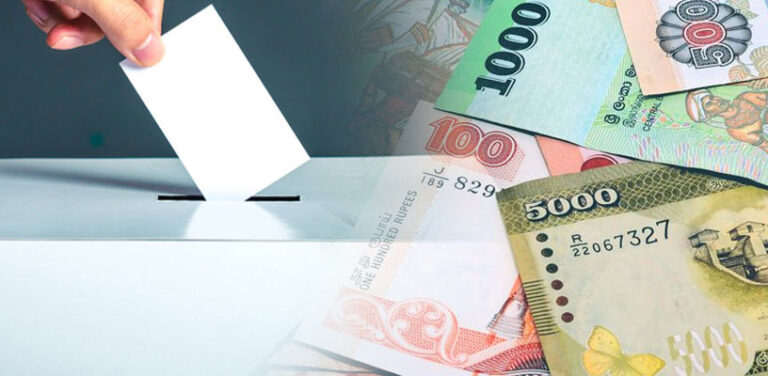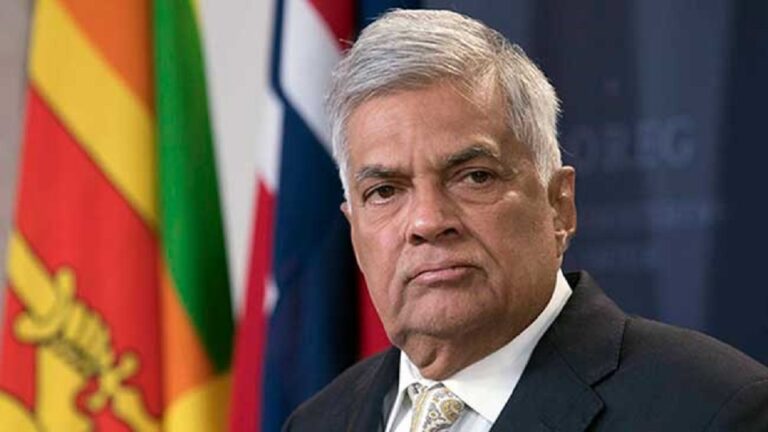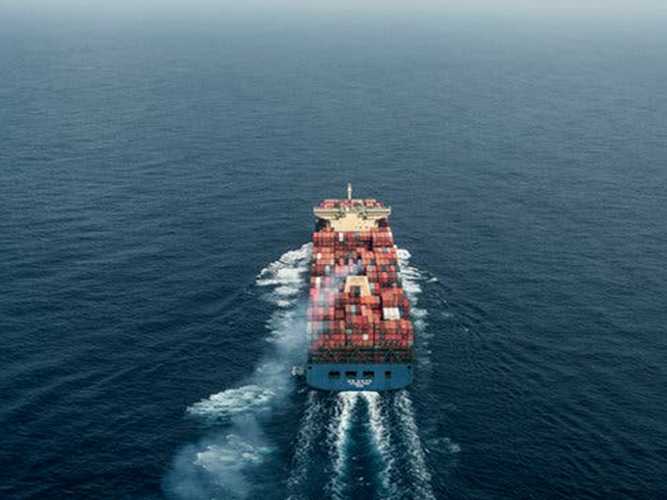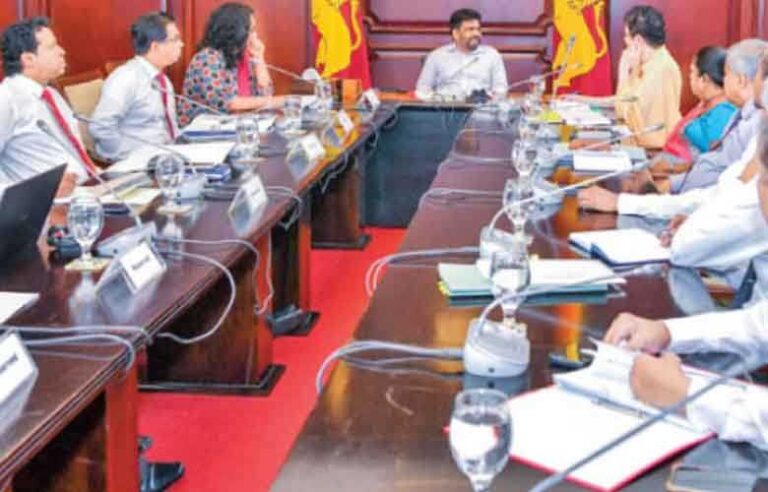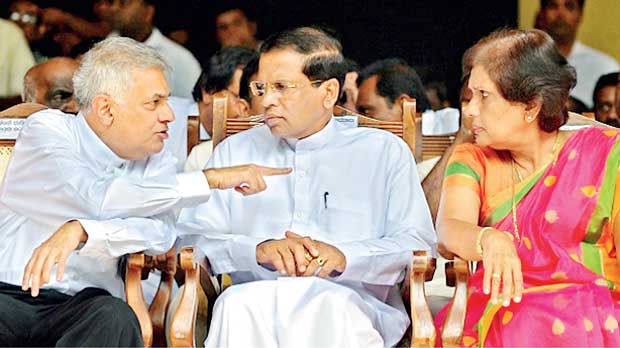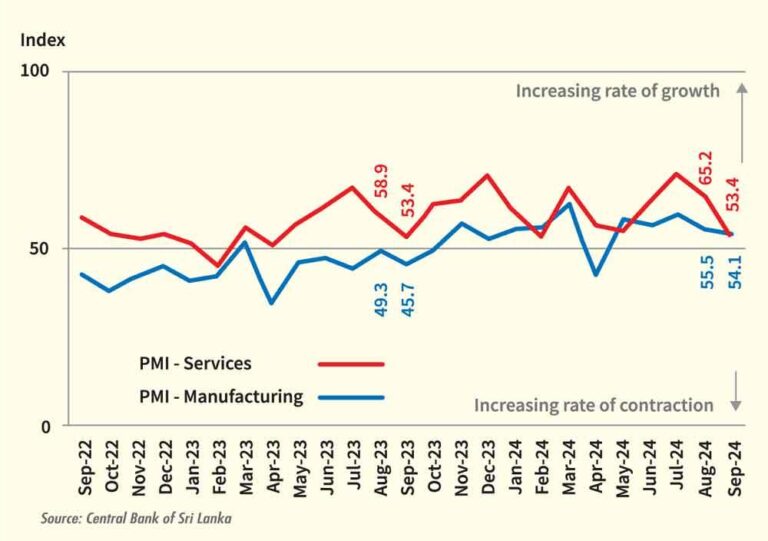- President Anura Kumara Dissanayake has made a decision to handover 500 houses constructed in Norochcholai in the Ampara district, to beneficiaries after a span of 14 years. This project was implemented to assist 500 families who were displaced and lost their homes as a result of the 2004 tsunami. This housing project, funded by the Saudi Arabian government in 2009, was yet to be handed over to the intended beneficiaries.
- Prime Minister Harini Amarasuriya engaged in discussions with several university student unions to address ongoing issues faced by students regarding their education and welfare. The meeting highlighted a range of unresolved challenges affecting university students.
- India has completed 60 grant projects in Sri Lanka and implementing 16 more currently, the development coming more through investments and grants and relatively less through debt instruments, India’s envoy to Sri Lanka said. Santosh Jha, the High Commissioner of India to Sri Lanka, also reaffirmed India’s support for island nation’s debt restructuring efforts, securing IMF support, and extending bilateral financial support to overcome immediate challenges.
- The government has announced an increase in taxes on certain imported goods, effective from October 14 to December 31, 2024. This move comes under the directive of President Anura Kumara Dissanayake, who also serves as the Minister of Finance.
- The Petroleum Trade Unions have criticized the Ceylon Electricity Board (CEB) for failing to implement the revision of electricity tariffs, which was supposed to take place on October 01, allegedly due to the irresponsible actions of the CEB.
- The Election Commission of Sri Lanka has issued a circular stipulating the maximum spending limit allowed for each candidate for campaigning purposes during the 2024 General Election. Accordingly, the maximum expenditure limit allowed for candidates, parties, independent groups and national list candidates have been stipulated based on the district.
- Former President Ranil Wickremesinghe addressed the critical issue of corruption during the CA Sri Lanka President’s Reflections program held in Colombo. He stressed the importance of amending several laws, including the Money Laundering Act and the Companies Act, to enable thorough investigations into corruption.
- The government has spent only 53% of the welfare budget allocated for the year within the first 8 months up to August, according to a report. A latest report from the Ministry of Finance indicates that the welfare budget has primarily been used to fund the ‘Aswesuma’ welfare program. Meanwhile, the report also states that Sri Lanka is expected to receive 1.69 billion US dollars in loans from multilateral agencies within the next 3 to 5 years.
- The Ministry of Health confirms that mobile medical services are actively operating in flood-affected areas. Secretary Palitha Mahipala said that fumigation efforts are underway to control dengue, and he reassured that no epidemic situations have been reported as a result of the flooding.
- Sri Lanka thrashed West Indies by 9 wickets on Thursday (October 17) to take the series by 2-1. Maheesh Theekshana and Wanindu Hasaranga chipped in with 2 wickets each to help the hosts restrict West Indies to 162 runs. In reply, both Kusal Mendis and Kusal Perera brought up magnificent fifties to take the series.
Sri Lanka Original Narrative Summary: 18/10
Weather Update: Showers Expected in Several Provinces
October 18, Colombo (LNW): The Meteorology Department has forecast several spells of showers in the Northern Province. Light showers are also expected in the Western, Sabaragamuwa, and North-Western provinces, as well as in Galle, Matara, Kandy, and Nuwara Eliya districts.
Additionally, showers or thundershowers may occur at a few locations in the Uva and Eastern provinces during the evening or night.
The public is advised to take precautions to minimize damages caused by temporary strong winds and lightning during thundershowers.

Clarification for routine fundraising efforts amidst financial market speculation
By: Isuru Parakrama
October 17, Colombo (LNW): Senior Presidential Advisor on Economic and Financial Affairs, Professor Anil Jayantha, has addressed recent reports concerning the government’s borrowing activities, clarifying that raising funds from the domestic financial market to cover expenses and repay maturing treasury bills and bonds is a standard procedure, not an extraordinary occurrence.
Speaking on the matter, Professor Jayantha emphasised that the government’s need to secure funds for essential services and operational costs is ongoing, facilitated through weekly treasury bill and bond sales conducted by the Central Bank of Sri Lanka.
“Each week, the Central Bank raises funds to meet the country’s financial needs, while also repaying those maturing on the due date. This is a regular, routine process that has been in place for years,” Jayantha explained, countering suggestions that recent fundraising efforts were linked to the appointment of the new President.
His remarks followed reports suggesting that the current administration has increased its borrowing from international markets.
However, the Senior Economist dismissed these claims, asserting that no additional borrowing had occurred and suggesting that media outlets reporting such activities were misinformed.
“What we are seeing is the usual process of collecting funds to support government functions. There has been no unusual or special borrowing from either domestic or international markets,” Jayantha said, adding that the media reports of new government loans should be investigated for accuracy.
He also touched upon the Central Bank’s efforts to stabilise the financial market, confirming that a recent purchase of US dollars had taken place to support this objective.
However, he clarified that this action occurred before the new President’s appointment, and remains a standard component of managing the nation’s financial stability.
Professor Jayantha’s comments aim to reassure the public and financial sectors that the current fundraising activities are part of established fiscal management practices, rather than a response to any sudden or pressing financial concern.
He further stressed that the government, through the Central Bank, continues to assess the domestic financial landscape to ensure that these processes remain effective and transparent.

PM holds talks with university student unions to address education and welfare concerns
By: Isuru Parakrama
October 17, Colombo (LNW): Prime Minister Harini Amarasuriya convened a crucial meeting this (17) afternoon with representatives from several university student unions to address a series of pressing issues affecting students across the country.
The discussions focused on the educational and welfare challenges that have long plagued the university system, with a particular emphasis on unresolved concerns that continue to impact student life.
The meeting saw active participation from various student unions, including the prominent Inter University Students’ Federation (IUSF), which has been vocal in highlighting the difficulties faced by students in accessing quality education and ensuring their basic welfare needs are met.
Key issues discussed included inadequate facilities, the growing disparity in educational resources, and the need for enhanced student support services.
Prime Minister Amarasuriya acknowledged the depth of the concerns raised and reiterated the government’s commitment to addressing these challenges in a comprehensive and sustainable manner.
She underscored the importance of ensuring equal access to education and improving the overall university experience, both academically and in terms of student welfare.
In addition, the dialogue touched upon the importance of safeguarding academic freedoms and the need for better dialogue between university administrations and student bodies to foster a more harmonious educational environment.

Election Commission imposes spending caps for Parliamentary Candidates
By: Isuru Parakrama
October 17, Colombo (LNW): The Election Commission of Sri Lanka has introduced spending limits for candidates contesting the upcoming Parliamentary elections, establishing clear financial boundaries to ensure fair competition.
These regulations aim to control campaign expenditure and promote transparency in the electoral process.
Under the new guidelines, the allowable campaign spending for individual candidates ranges between Rs. 1.7 million and Rs. 5.7 million, depending on the district in which they are contesting.
Candidates running for a seat on the national list, however, face a significantly lower spending cap, with permissible amounts varying between Rs. 6,200 and Rs. 53,600.
Political parties and independent groups participating in the General Election have also been given specific financial limits.
The maximum expenditure permitted for such entities ranges from Rs. 9.9 million to Rs. 81.7 million, based on the size and scope of their campaigns.
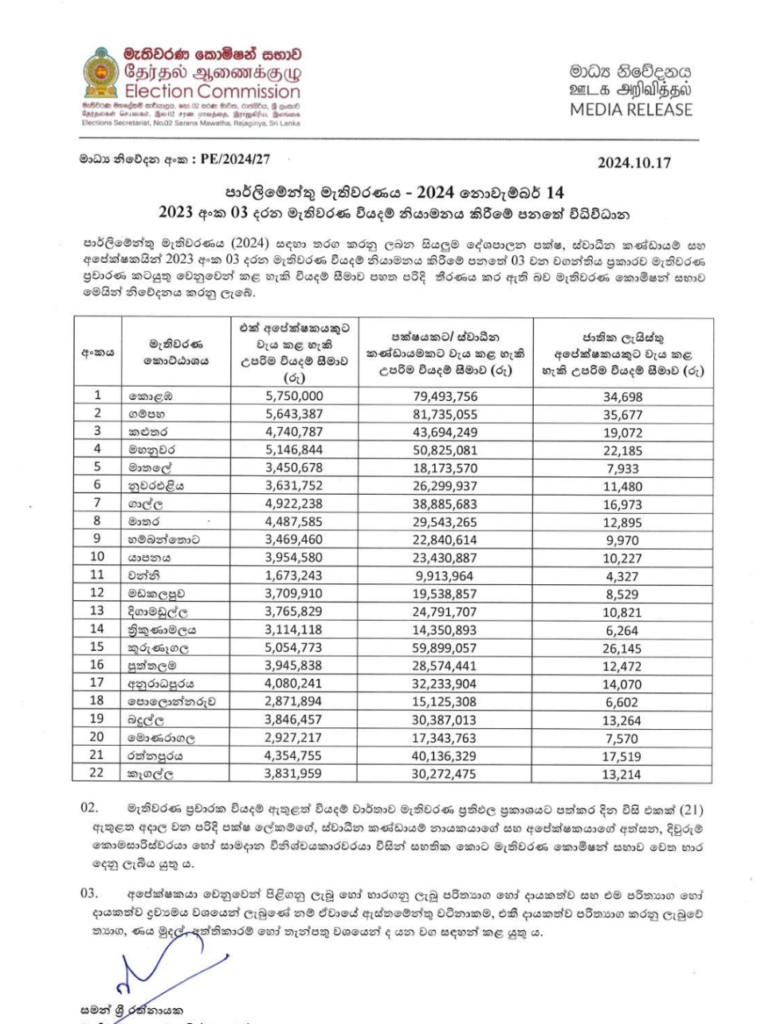

Experienced leadership crucial for overcoming economic challenges: RW
By: Isuru Parakrama
October 17, Colombo (LNW): Former President Ranil Wickremesinghe has emphasised the need for experienced individuals in Parliament to effectively address the ongoing economic challenges facing Sri Lanka.
In a special statement made today (17), he highlighted the critical role that seasoned leaders play in navigating crises and ensuring the stability of the nation’s economy.
Wickremesinghe stressed that those who have worked closely with him over the past two years possess the necessary expertise to tackle complex economic issues.
He argued that their continued presence in Parliament is essential for the country’s progress, regardless of their political affiliations.
“Whether you are part of the Government or the Opposition, running Parliament without experience will inevitably lead to failure in achieving key objectives,” he stated.
Wickremesinghe’s remarks come at a time when the nation is grappling with significant economic difficulties, making strong leadership and informed decision-making all the more critical.
He further elaborated on the importance of retaining experienced professionals within the legislative body, asserting that economic recovery cannot be managed by inexperienced individuals alone.
Wickremesinghe’s comments came in as a call for unity and capability, underscoring that addressing the crisis requires a collective effort from all political parties, guided by those with proven knowledge and leadership.

Satellite monitoring uncovers alarming levels of marine pollution in SL waters
By: Isuru Parakrama
October 17, Colombo (LNW): The Maritime Environment Protection Authority (MEPA) has revealed that a staggering 26 ships contributed to pollution in Sri Lankan waters over the past year, based on findings from a satellite monitoring initiative conducted in partnership with the French government.
This project utilises cutting-edge satellite technology to track and analyse instances of maritime contamination, providing critical insights into the state of the nation’s marine environment.
Amongst the most significant incidents impacting Sri Lanka’s marine ecosystem are the catastrophic shipwrecks of the New Diamond and the X-Press Pearl. In September 2020, the New Diamond, which caught fire and subsequently sank 38 nautical miles off the east coast, and the X-Press Pearl, a Singapore-registered vessel that sank near Colombo Port after a fire in May 2021, both inflicted severe and lasting damage to marine life and coastal regions.
These disasters highlighted the vulnerabilities of Sri Lanka’s waters and the need for stringent environmental protections.
In light of these environmental calamities, MEPA, with assistance from a French firm, initiated a pilot project aimed at monitoring fuel spills in the nation’s waters using advanced satellite technology.
This initiative has yielded alarming results, confirming that 26 vessels entering Sri Lankan waters have contributed to the pollution crisis over the last year.
Project Manager Oliver Germane commented on the findings, stating, “When we presented this report to various stakeholders, they were taken aback by the sheer volume of pollution detected. In total, we identified 115 instances of pollution over the span of 12 months, indicating that each time we capture an image, there is over a 50% chance of identifying pollution in that image.”
Germane further elaborated on the scale of the pollution, estimating that more than 6 million litres of pollutants were released into Sri Lankan waters throughout the year.
This equates to roughly 500,000 litres of pollutants entering the marine environment each month.
Notably, he pointed out that the pollution resulting from the X-Press Pearl incident alone was estimated at 350,000 litres, suggesting that similar volumes of pollutants are being introduced into the waters monthly from various sources.
Moreover, Germane indicated that the project had enabled the identification of potential polluters in several instances.
“In 26 cases, we were able to pinpoint the vessels responsible for the pollution, which allows us to take necessary actions against these entities,” he remarked.
The MEPA is poised to take stronger measures to safeguard its waters, ensuring that both the ecosystem and the livelihoods dependent on it are protected for future generations.

President calls for educational reform to meet global standards
By: Isuru Parakrama
October 17, Colombo (LNW): President Anura Kumara Dissanayake has underscored the urgent need to revitalise Sri Lanka’s education system to align with global standards and equip future generations for success.
During a progress review meeting at the Presidential Secretariat on the 16th of October, he emphasised that a robust educational framework is essential for enhancing the nation’s human capital, which is crucial for Sri Lanka’s long-term development.
Highlighting the responsibility that education officials bear in shaping the workforce for the next decade, the President articulated the need for educational initiatives to be closely aligned with international requirements.
“Our children must acquire the necessary skills and knowledge to thrive in a rapidly changing world,” he stated, asserting that educational reforms must be tailored to prepare students for future challenges.
The meeting, co-chaired by Prime Minister Dr. Harini Amarasuriya, delved into five pivotal projects spearheaded by the Ministries of Education, Science, and Technology.
Among the key topics discussed were the modernisation of school curricula, enhancements in teacher training programmes, improvements in secondary education, advancements in technical education, and the expansion of information technology education.
Both the President and Prime Minister urged officials to accelerate the implementation of these initiatives, recognising that timely execution is vital to ensure that reforms reach all children effectively.
A significant focus was placed on reorganising the current school system to make educational opportunities more accessible and impactful for every student across the country.
Furthermore, discussions included plans to increase the number of schools offering Advanced Level curricula in science, mathematics, and technology.
This initiative aims to better prepare students for higher education and to meet the demands of a technologically driven economy.
The meeting was attended by key officials, including Secretary to the President Dr. Nandika Sanath Kumanayake and Education Ministry Secretary Tilaka Jayasundara, alongside various representatives from the relevant ministries.
In conclusion, President Dissanayake’s vision for a reformed education system reflects a broader commitment to fostering a knowledgeable and skilled workforce capable of driving the nation’s progress in the years to come.

Three ex-Presidents share insights at Chartered Accountants’ Conference
October 17, Colombo (LNW): At the 45th National Conference of Chartered Accountants in Colombo, three former Sri Lankan Presidents—Chandrika Bandaranaike Kumaratunga, Maithripala Sirisena, and Ranil Wickremesinghe—came together to discuss the country’s political landscape.
The event, held on the 16th of October, provided a unique platform for the former leaders to reflect on governance and share advice for the nation’s future.
Maithripala Sirisena took the opportunity to speak about integrity within government, stressing that progress requires more than just a capable leader.
“A country cannot advance solely because its ruler is honest,” he noted, emphasising that the Prime Minister, Cabinet, and other officials must also operate free from corruption.
He also expressed frustration with the narrative that the country has been corrupt for decades, urging people to consider the broader role of society in fostering change.
Sirisena went on to highlight that politicians and civil servants alike should receive proper training to serve the nation effectively, while also pointing out the public’s responsibility to support clean governance.
Turning to a more light-hearted note, Sirisena offered an optimistic perspective for the future, jokingly suggesting that perhaps one day a Chartered Accountant might ascend to the presidency.
He used the opportunity to underline the need for citizen involvement in building a stronger country, particularly during elections, where integrity often gets overshadowed by vote-buying practices.
Ranil Wickremesinghe focused on the parallels between corporate and political leadership, using the late Mr. Panditaratne as an example. Wickremesinghe observed that, while corporate leaders and politicians may share certain skills, the roles are inherently different, highlighting how leadership in business doesn’t always translate to political success.
“Steve Jobs would never have been President of the United States,” he remarked, contrasting this with Donald Trump’s ability to make the leap from business to politics.
Chandrika Bandaranaike Kumaratunga underscored the importance of capable, educated individuals entering politics. She expressed hope for a new generation of leaders, even though she no longer participates directly in the political arena.
Her remarks reinforced the need for structural changes in how leadership is nurtured and encouraged in the country.
When the subject of corruption in ministries was raised, Sirisena candidly addressed the issue, pointing out that corrupt practices within the government often extend beyond just politicians.
“There are educated people who steal,” he stated, explaining that corruption frequently involves ministry secretaries and other senior officials, creating a network of complicity.
Finally, when asked about his controversial decision to appoint Mahinda Rajapaksa as Prime Minister during the “Good Governance” government, Sirisena responded with a touch of humour. He suggested that anyone curious about the details could ask him privately but took full responsibility for his choices, acknowledging that leadership often involves making difficult and divisive decisions.
The gathering offered a rare and insightful glimpse into the thoughts of three former leaders, each bringing their unique experiences and perspectives to the conversation, while addressing the pressing challenges facing Sri Lanka today.

Economic activity continues to expand despite slowdown in manufacturing and services sectors
October 17, Colombo (LNW): Sri Lanka’s Purchasing Managers’ Index (PMI) for both manufacturing and services sectors indicated ongoing expansion in economic activities through September 2024, though both sectors experienced a slight slowdown compared to the previous month.
The PMI for manufacturing registered an index value of 54.1 in September, a modest decline from August’s reading of 55.5. Similarly, the services sector saw its PMI drop to 53.4, down from a more robust 65.2 in August.
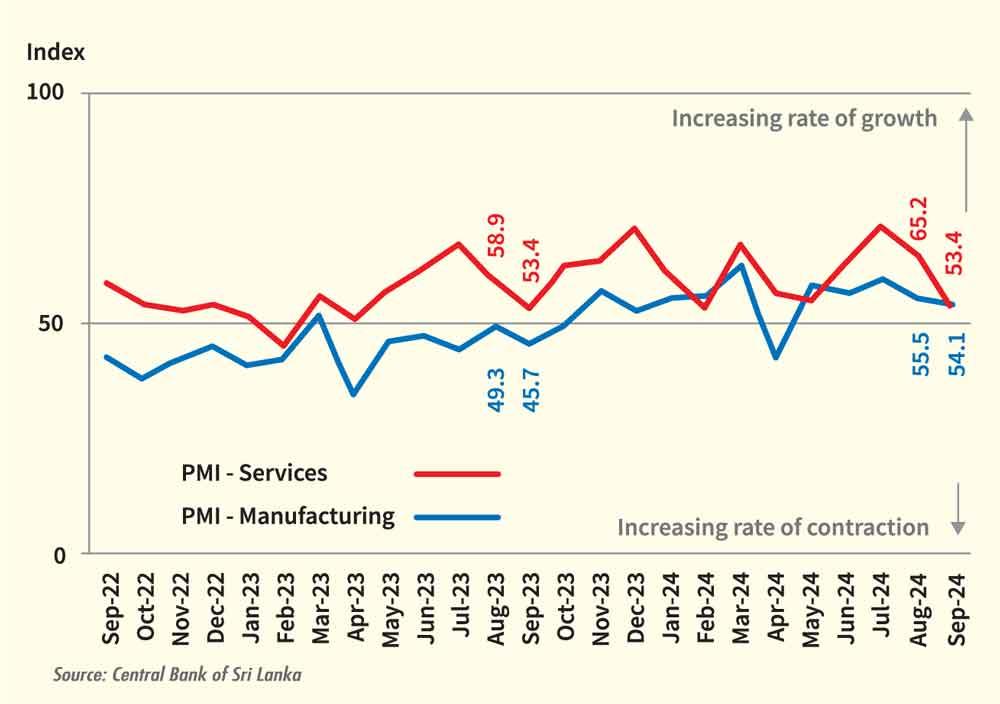
A PMI reading above 50.0 indicates expansion, while values below this threshold signal contraction. Despite the elections held in September, economic activity remained resilient, continuing its expansion, though at a slightly softer pace.
The manufacturing sector’s growth was driven by an increase in new orders and production, particularly within the food and beverage industry. This upsurge was supported by preparations for the year-end festive season, which is expected to bring heightened demand from both domestic and export markets.
Businesses have begun to stock up on materials in anticipation of this seasonal increase in consumption, leading to a rise in inventory levels. Although employment in the sector continues to contract, the rate of decline has slowed, suggesting that companies are gradually rehiring to meet production needs.
Meanwhile, the services sector was buoyed by improving financial conditions, as lower lending rates have encouraged businesses to borrow for working capital and investment purposes.
Some firms have also sought to refinance earlier loans taken during periods of higher interest rates. Notably, business activities in education, professional services, programming, and broadcasting expanded during September.
However, sectors such as wholesale and retail trade, IT programming, and telecommunications remained stable, with no notable growth compared to August.
Employment within the services sector also saw a continued decline, although at a slightly slower pace. Overall, Sri Lanka’s economy is performing well in 2024, as indicated by the PMI readings.
The country has managed to move beyond the severe foreign currency crisis that hampered its economic progress in late 2021, with growth now becoming more sustainable.


